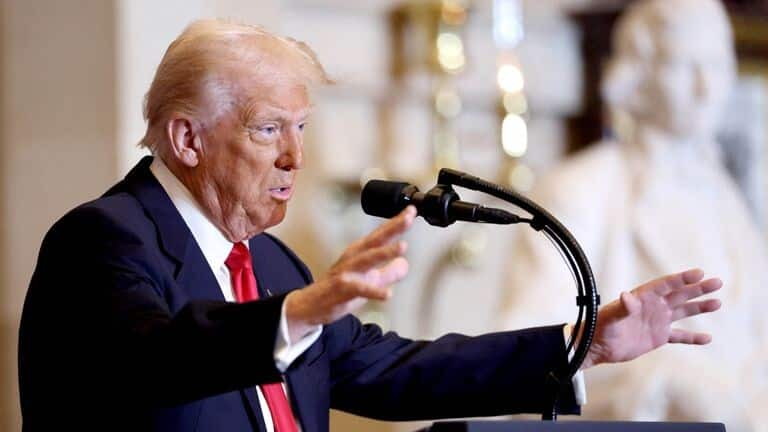
10 countries, including India, most affected by Trump's steel tariffs
What's the story
United States President Donald Trump has announced a 25% tariff on all steel and aluminum imports.
The move is part of a broader strategy under Section 232 of the Trade Expansion Act to address trade deficits and boost domestic production.
The new tariffs are expected to significantly impact global trade, particularly affecting the top exporters to the US, such as Canada, China, and Mexico.
Trade repercussions
Potential impact on major steel and aluminum exporters
In this light, Canada, the biggest exporter of these metals to the US, may seek exemptions or retaliatory actions against Trump's tariffs.
Meanwhile, China could double down on its efforts to diversify export markets, with increased pressure from these tariffs.
On the other hand, Mexico's manufacturing sector could be disrupted due to its close integration with the US supply chain.
The new tariffs are set to take effect on March 4, with no initial exemptions for trading partners.
Economic effects
Tariffs' impact on Asian and European economies
In Asia, South Korea's auto industry could be hit as production costs rise with the tariffs.
Brazil may have to look for new trade partners to compensate for the losses in its steel exports.
Germany's industrial growth could be hampered by increased costs for its firms, while Taiwan may have to look for other markets for its specialty steel and aluminum components.
Industry impact
India's steel industry faces challenges and opportunities
India, which stands eighth among top exporters to the US, could witness a slowdown in exports and higher production costs due to the tariffs.
At the same time, there could be potential benefits if US buyers look for alternatives outside China and Canada.
Similarly, Japan's high-tech products could become costlier in the US market, reducing demand.
Italy's economy too could take a hit if higher tariffs reduce US demand for its steel exports.
Global impact
Broader implications of Trump's steel and aluminum tariffs
Trump's order also extends tariffs to downstream items that employ foreign-made steel, including fabricated structural steel, aluminum extrusions, and steel strand for pre-stressed concrete.
His earlier tariffs in 2018 reduced US imports of metals but also triggered retaliation from trading partners such as the European Union.
The administration plans enhanced oversight by US Customs and Border Protection to avoid tariff evasion through misclassification of steel products.